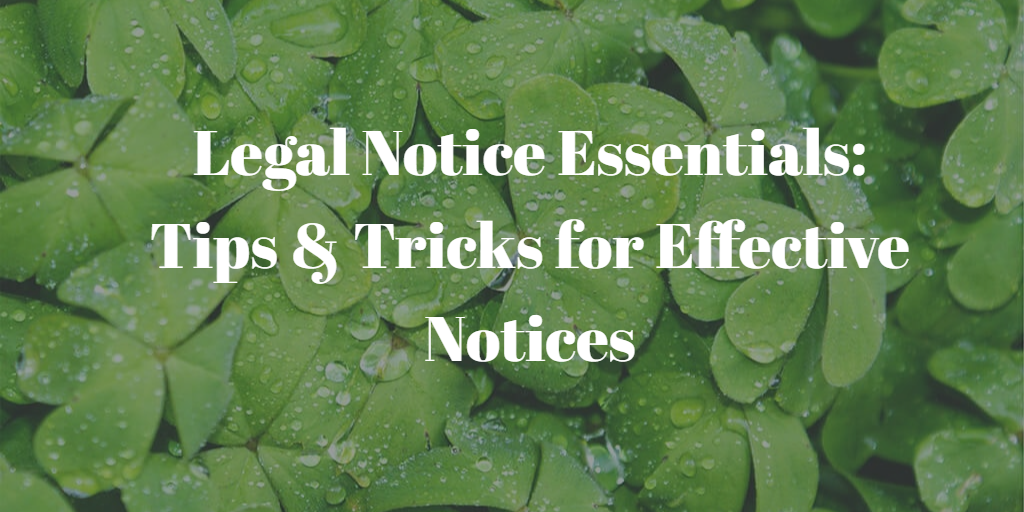Legal Notice Essentials: Tips & Tricks for Effective Notices

Table of Contents
Understanding the Purpose of a Legal Notice
Using Clear and Precise Language
Including Essential Elements
Ensuring Proper Delivery
Seeking Legal Advice
1. Understanding the Purpose of a Legal Notice
A legal notice is a formal written document used to communicate specific information or a demand between parties. It can be related to a variety of legal issues, such as contract disputes, property matters, or personal injury claims. Understanding the purpose of your legal notice will help you tailor it to the unique requirements of your situation.
2. Using Clear and Precise Language
When writing a legal notice, use clear and precise language to avoid misunderstandings. Avoid using jargon, slang, or abbreviations. Instead, focus on providing a concise and accurate description of the issue at hand, the relevant facts, and the action you require from the recipient.
3. Including Essential Elements
A well-crafted legal notice should include the following elements:
The sender's name, address, and contact information
The recipient's name, address, and contact information
The date of the notice
A clear statement of the issue or demand
Relevant details, such as dates, contract terms, or statutes
A deadline for the recipient to respond or take action
A statement outlining the consequences if the recipient fails to comply
4. Ensuring Proper Delivery
Deliver your legal notice through a method that provides proof of receipt, such as certified mail, courier service, or hand delivery. Keep a record of the delivery method and any tracking information to confirm that the recipient has received the notice.
5. Seeking Legal Advice
Although you can draft a legal notice on your own, it's advisable to seek the guidance of an experienced attorney to ensure it complies with the law and effectively communicates your demands. A legal professional can also provide advice on your rights and the best course of action for your particular situation.
By following these tips and guidelines, you can create an effective legal notice that protects your interests and communicates your demands with clarity and precision.


